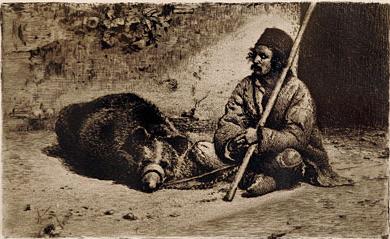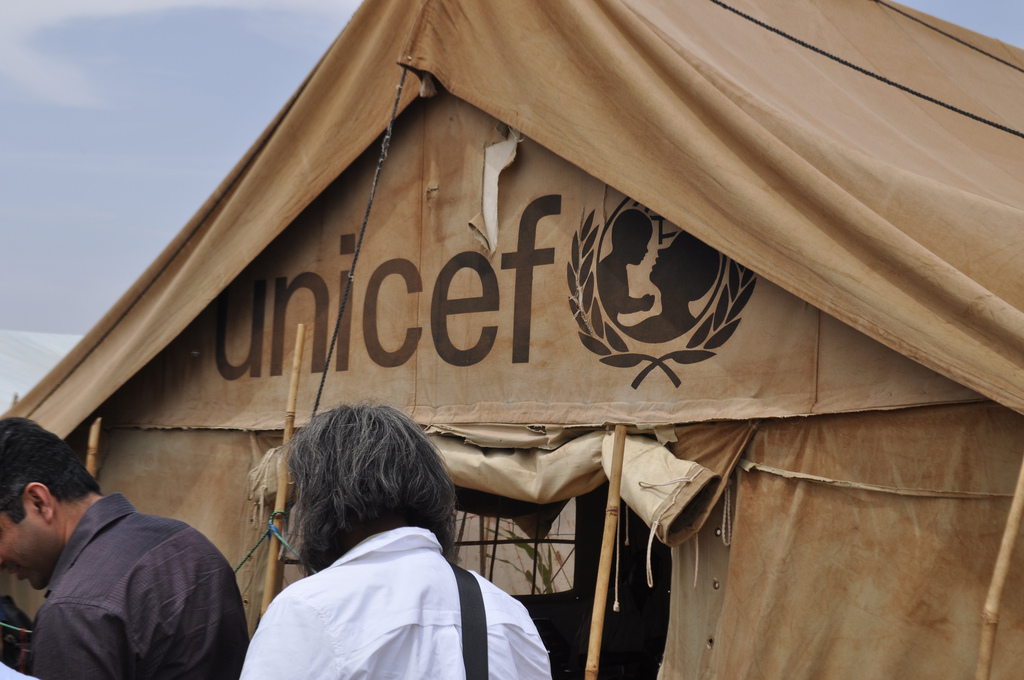|
Ursari
The Ursari (generally read as "Bear-leader, bear leaders" or "bear handlers"; from the , meaning "bear"; singular: ''ursar''; Bulgarian language, Bulgarian: урсари, ''ursari'') or Richinara are the traditionally nomadic occupational group of Animal training, animal trainers among the Romani people. An Endogamy, endogamous category originally drawing the bulk of its income from busking performances in which they used dancing bears, usually brown bears and, in several instances, Old World monkeys. They have largely become settled after the 1850s. The Ursari form an important part of the Roma minority in Romania, Roma community in Romania, where they are one of the 40 tribal groups, Centrul de Documentare şi Informare despre Minorităţile din Europa de Sud-Est''Romii din România'' at thErdélyi Magyar Adatbank retrieved June 25, 2007 as well as notable segments of the Bulgarian Roma in Bulgaria, Roma population and of the one in Moldova. They also form a sizable part of th ... [...More Info...] [...Related Items...] OR: [Wikipedia] [Google] [Baidu] |
Roma Minority In Romania
Romani people in Romania, locally and pejoratively referred to as the (), constitute the second largest ethnic minority in the country (the first being Hungarians in Romania, Hungarians). According to the Demographics of Romania#Censuses in Romania, 2021 census, their number was 569,477 people and 3.4% of the total population. The size of the total population of people with Romani ancestry in Romania is even more, with different estimates varying from 4.6 percent to over 10 percent of the population, because many people of Romani descent do not declare themselves Roma. For example, in 2007 the Council of Europe estimated that approximately 1.85 million Roma lived in Romania, based on an average between the lowest estimate (1.2 to 2.2 million people) and the highest estimate (1.8 to 2.5 million people) available at the time. This figure is equivalent to 8.32% of the population. On the other hand, less than half are native speakers of the Romani language. Origins History, genetics ... [...More Info...] [...Related Items...] OR: [Wikipedia] [Google] [Baidu] |
Călărași District
Călărași () is a district () in the centre of Moldova, with the administrative headquarters in Călărași, Moldova, Călărași. As of January 1, 2011, its population was 78,800. History The district territory is inhabited since Paleolithic, 50–40,000 years ago. Human settlement, Settlements with the earliest documentary attestation of the district are: Horodişte, Călăraşi, Horodiște, Pitușca, and Sadova, Călăraşi, Sadova, they are certified in 1420. During the component was in the Principality of Moldova (1359–1812), the current Călărași territory held by the Orhei County (Romania), Orhei - Lăpuşna County (Romania), Lăpușna County. After dividing the land Orhei - Lapusna in two separate counties, some localities have passed Orhei County and the other part Lăpușna County. From the 16th through the 18th centuries, the district developed economically (trade, wine), culturally (to build monasteries, Frumoasa, Călăraşi, Frumoasa, Hârbovăţ and Răciula) ... [...More Info...] [...Related Items...] OR: [Wikipedia] [Google] [Baidu] |
Roma In Bulgaria
Romani people in Bulgaria (; ) constitute Europe's densest Roma minority. The Romani people in Bulgaria may speak Bulgarian, Turkish or Romani, depending on the region. Statistics According to the latest census in 2011, the number of the Romani is 325,343, constituting 4.4% of the total population, in which only one ethnic group could be opted as an answer and 10% of the total population did not respond to the question on ethnic group. In a conclusive report of the census sent to Eurostat, the authors of the census (the National Statistical Institute of Bulgaria) identified the census results on ethnicity as a "gross manipulation". The former head of the National Statistical Institute of Bulgaria, Reneta Indzhova claims to have been fired by the Bulgarian Prime Minister in 2014 for attempting to check the actual number of the Romani and implied that neither the census did enumerate the Romani, nor its statistics did provide the "real data". The previous 2001 cen ... [...More Info...] [...Related Items...] OR: [Wikipedia] [Google] [Baidu] |
Delia Grigore
Delia Grigore ( Romani: ''Deliya Grigore''; born February 7, 1972) is a Romanian Romani writer, philologist, academic and activist. Biography Grigore was born on February 7, 1972, in Galați, and grew up under the Romanian communist regime, when the Roma were not recognized as an ethnic group, but as foreign elements that must assimilate in Romanian society. During that time, her family hid their real identity so as to avoid discrimination. After the Romaniann Revolution of 1989 she could reassert her Romani ethnicity and relearn the language. In 1990, she completed secondary studies at the Zoia Kosmodemianskaia High School in Bucharest, while in 1992 she graduated the ''Sanskrit Language and Indian Old Civilization and Culture'' course from the University of Bucharest. In 1995 she obtained a degree in ''Romanian and English philology'' from the Faculty of Philology at the University of Bucharest. Since 2000, Delia Grigore has published a series of writings about Romani cu ... [...More Info...] [...Related Items...] OR: [Wikipedia] [Google] [Baidu] |
Danube
The Danube ( ; see also #Names and etymology, other names) is the List of rivers of Europe#Longest rivers, second-longest river in Europe, after the Volga in Russia. It flows through Central and Southeastern Europe, from the Black Forest south into the Black Sea. A large and historically important river, it was once a frontier of the Roman Empire. In the 21st century, it connects ten European countries, running through their territories or marking a border. Originating in Germany, the Danube flows southeast for , passing through or bordering Austria, Slovakia, Hungary, Croatia, Serbia, Romania, Bulgaria, Moldova, and Ukraine. Among the many List of cities and towns on the river Danube, cities on the river are four national capitals: Vienna, Bratislava, Budapest, and Belgrade. Its drainage basin amounts to and extends into nine more countries. The Danube's longest headstream, the Breg (river), Breg, rises in Furtwangen im Schwarzwald, while the river carries its name from its ... [...More Info...] [...Related Items...] OR: [Wikipedia] [Google] [Baidu] |
UNICEF
UNICEF ( ), originally the United Nations International Children's Emergency Fund, officially United Nations Children's Fund since 1953, is an agency of the United Nations responsible for providing Humanitarianism, humanitarian and Development aid, developmental aid to children worldwide. The organization is one of the most widely known and visible social welfare entities globally, operating in 192 countries and territories. UNICEF's activities include providing immunizations and disease prevention, administering Antiretroviral drug, treatment for children and mothers with HIV, enhancing childhood and maternal nutrition, improving sanitation, promoting education, and providing emergency relief in response to disasters. UNICEF is the successor of the United Nations International Children's Emergency Fund, and was created on 11 December 1946, in New York, by the United Nations Relief and Rehabilitation Administration, U.N. Relief Rehabilitation Administration to provide immediate r ... [...More Info...] [...Related Items...] OR: [Wikipedia] [Google] [Baidu] |
Sinti
The Sinti (masc. sing. ''Sinto''; fem. sing. ''Sintetsa, Sinta'') are a subgroup of the Romani people. They are found mostly in Germany, France, Italy and Central Europe, numbering some 200,000 people. They were traditionally Itinerant groups in Europe, itinerant, but today only a small percentage of Sinti remain unsettled. In earlier times, they frequently lived on the outskirts of communities. Within the Sinti Community are various tribes such as the Manouche in France. They speak the Sinte Romani, Sinti-Manouche variety of Romani language, Romani, which exhibits strong German language, German influence. Etymology and origin The origin of the Sinti people, as with the broader Romani people, lies generally in the Indian subcontinent. While people from the western Indian subcontinent's Sindh region were mentioned in 1100 by Ahmad ibn Muhammad al-Maydani, it is unclear whether the Sindhi people were the ancestors of modern Sinti, though it is clear that Sinti and other Romani ... [...More Info...] [...Related Items...] OR: [Wikipedia] [Google] [Baidu] |
Oxford
Oxford () is a City status in the United Kingdom, cathedral city and non-metropolitan district in Oxfordshire, England, of which it is the county town. The city is home to the University of Oxford, the List of oldest universities in continuous operation, oldest university in the English-speaking world; it has buildings in every style of Architecture of England, English architecture since late History of Anglo-Saxon England, Anglo-Saxon. Oxford's industries include motor manufacturing, education, publishing, science, and information technologies. Founded in the 8th century, it was granted city status in 1542. The city is located at the confluence of the rivers Thames (locally known as the Isis) and River Cherwell, Cherwell. It had a population of in . It is north-west of London, south-east of Birmingham and north-east of Bristol. History The history of Oxford in England dates back to its original settlement in the History of Anglo-Saxon England, Saxon period. The name � ... [...More Info...] [...Related Items...] OR: [Wikipedia] [Google] [Baidu] |
Blackwell Publishing
Wiley-Blackwell is an international scientific, technical, medical, and scholarly publishing business of John Wiley & Sons. It was formed by the merger of John Wiley & Sons Global Scientific, Technical, and Medical business with Blackwell Publishing in 2007. Wiley-Blackwell is now an imprint that publishes a diverse range of academic and professional fields, including biology, medicine, physical sciences, technology, social science, and the humanities. Blackwell Publishing history Blackwell Publishing was formed by the 2001 merger of two Oxford-based academic publishing companies, Blackwell Science, founded in 1939 as Blackwell Scientific Publishing, and Blackwell Publishers, founded in 1922 as Basil Blackwell & Mott. Blackwell Publishers, founded in 1926, had its origins in the 19th century Blackwell's family bookshop and publishing business. The merger between the two publishing companies created the world's leading learned society publisher. The group then acquired BMJ B ... [...More Info...] [...Related Items...] OR: [Wikipedia] [Google] [Baidu] |
Boyash
Boyash or Bayash (endonym: ''Bȯjáṡ'', Romanian language, Romanian: ''Băieși'', Hungarian language, Hungarian: ''Beás'', Slovak language, Slovak: ''Bojáš'', Serbo-Croatian, South Slavic: ''Banjaši'', ''Bojaši'') are a Romani people, Romani ethnic group living in Romania, Moldova, southern Hungary, northern Croatia, northern Serbia, Slovakia, the Balkans, but also in the Americas. Alternative names are Rudari (Ludari), Lingurari and Zlătari. History The Boyash or Băieși (in Romanian) are a branch/caste of the Roma who were forced to settle in the 14th century in the Apuseni Mountains, located in Transylvania, and work as slaves in mining (a regionalism for ''mine'' in Romanian: "baie," from Middle Age Old Church Slavonic, Slavonic). At the end of the 16th century the Boyash started migrating towards the south, in Wallachia, and the east, in Moldavia, where they were held as slaves together with other Romani groups (until the Slavery in Romania, slavery was abo ... [...More Info...] [...Related Items...] OR: [Wikipedia] [Google] [Baidu] |
Balkan Romani Language
Balkan Roma, Balkaniko Romanes, or Balkan Gypsy is a specific non- Vlax dialect of the Romani language, spoken by groups within the Balkans, which include countries such as Albania, Bosnia-Herzegovina, Bulgaria, Greece, Kosovo, North Macedonia, Serbia, Slovenia, Turkey Turkey, officially the Republic of Türkiye, is a country mainly located in Anatolia in West Asia, with a relatively small part called East Thrace in Southeast Europe. It borders the Black Sea to the north; Georgia (country), Georgia, Armen ... etc. The Balkan Romani language is typically an oral language. History Most of the people who speak Balkan Romani are Roma themselves. Another meaning of the prefix ''rom'' is someone belonging to the Roma ethnicity. The Roma are ultimately of Indian origin. Speakers of the Balkan Romani language have constantly migrated throughout the years into all parts of Europe. Since these speakers have migrated to different parts of Europe, new dialects have formed. Although t ... [...More Info...] [...Related Items...] OR: [Wikipedia] [Google] [Baidu] |
Dialect
A dialect is a Variety (linguistics), variety of language spoken by a particular group of people. This may include dominant and standard language, standardized varieties as well as Vernacular language, vernacular, unwritten, or non-standardized varieties, such as those used in developing countries or isolated areas. The non-standard dialects of a language with a writing system will operate at different degrees of distance from the standardized written form. Standard and nonstandard dialects A ''standard dialect'', also known as a "standardized language", is supported by institutions. Such institutional support may include any or all of the following: government recognition or designation; formal presentation in schooling as the "correct" form of a language; informal monitoring of everyday Usage (language), usage; published grammars, dictionaries, and textbooks that set forth a normative spoken and written form; and an extensive formal literature (be it prose, poetry, non-ficti ... [...More Info...] [...Related Items...] OR: [Wikipedia] [Google] [Baidu] |







